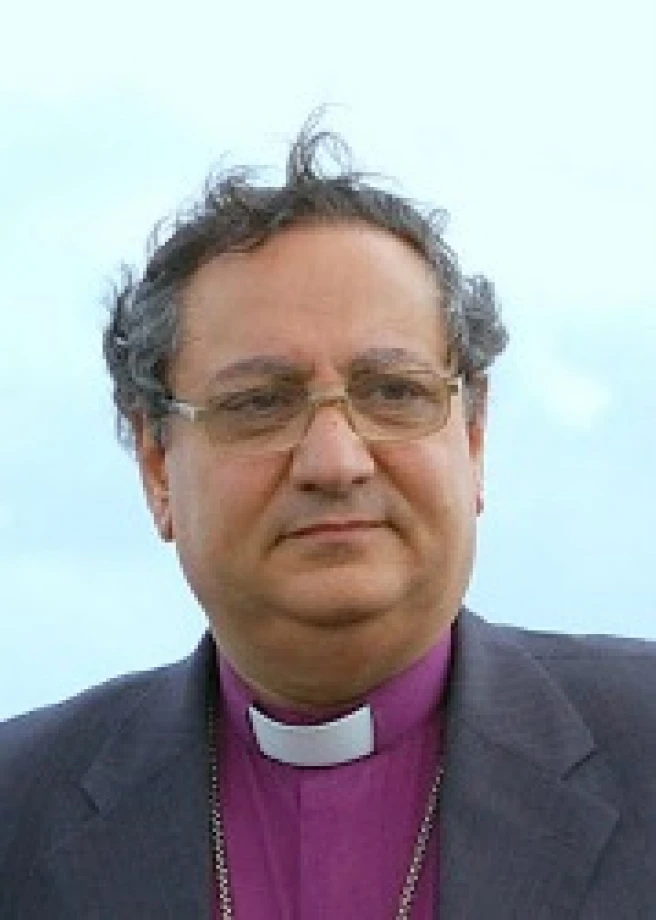A statement from Bishop Mouneer of Egypt following the election results
The majority of Egyptians have been holding their breath over the last few days. They were eagerly awaiting the announcement of the first president after the 25th of January Revolution. It was announced this afternoon, the 24th of June, that Mohammed Mursi won 51.7 percent of the votes, while his opponent Ahmed Shafiq won 48.3 percent. By this close margin, Mursi became the first Islamist President in Egypt.
Mursi, 60 years of age, was born in the Nile Delta. He is married and has five children and three grandchildren. He has a doctorate degree in space engineering from the University of South California. He has been an active member of the Muslim Brotherhood movement for many years. The Muslim Brotherhood is a political Islamic movement that started in Egypt in 1928, and is now an international network. Mursi became the President of the Muslim Brotherhood party, called the Freedom and Justice Party, which was established after the Revolution. He was arrested and imprisoned several times for short periods during Mubarak’s time. The last time was on the 28th of January 2011, and he was released by unknown people who opened the prison two days later.
Mursi promised to be a president for all Egyptians, to appoint a prime minister who is not from the Muslim Brotherhood, and moreover he promised to appoint a Christian vice–president. He made these promises to calm the widespread anxiety of the moderate Muslims and the Christians, who were hoping for a secular government. It is worth mentioning that over the last eight months, the Muslim Brotherhood has lost a lot of support because when they became the biggest party in the Egyptian parliament, they tried to dominate the committee which was responsible for writing the constitution. In addition, the Muslim Brotherhood promised that they would not nominate a presidential candidate; however they changed their mind and nominated Mursi. They also did not give any attention over the last year to the hardships of the Christians in Egypt. All of these reasons were behind the narrow margin in today’s election results.
The fear now is that Mursi will not fulfill his promises, and will try to control the government, the police and the upcoming parliamentary elections. If Egypt became an
Islamic state, this will mean that Christians will be marginalized. It is true that today he withdrew from the Muslim Brotherhood Party; however he will continue to be influenced by their ideology. Some writers express their fears that if the Muslim Brotherhood gained control of Egypt, they will stay in power for more than 100 years.
The High Military Council, being aware of this anxiety, took several decisions last week to limit the authority of the incoming president, and to ensure that Egypt stays as a secular state. Either the Council, or 20% of the members of the committee that is writing the constitution, can object to any article of the constitution. The Constitutional Court will be responsible for making a final decision on such articles. Mursi will not have the upper hand over the army and the defense of the country, but he will be a member of a Council for Defence. I am aware that some Western governments are critical of these decisions; however we see them as important measures to guarantee a secular state.
We as a church accept the results of the election. We are committed to praying for Mursi, and we hope that he will fulfill his promises. We will continue to speak out if there is any deviation in our democratic journey. We trust in God and His promises in the middle of this uncertainty and anxiety. He promised that the gates of Hades will never overcome His church. Please pray for our beloved country Egypt.
May the Lord bless you!
Yours in Christ,
+ Mouneer Egypt
The Most Rev. Dr. Mouneer Hanna Anis
Bishop of the Episcopal/Anglican Diocese of Egypt
with North Africa and the Horn of Africa
President Bishop of the Episcopal/Anglican Province of Jerusalem and the Middle East
